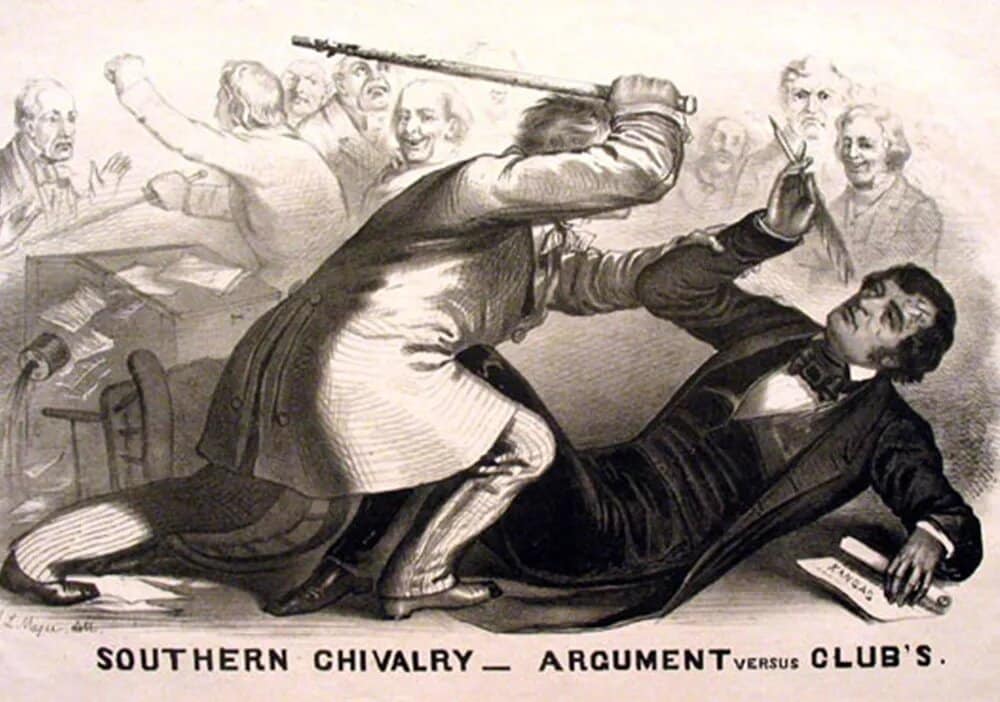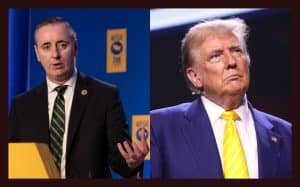“Nothing better testifies to the importance of Congress in preserving and defining the American nation than witnessing the impact of its systemic breakdown.” — Joanne B. Freeman
In the decades leading up to the American Civil War, political and social violence fostered by a rapidly spreading southern slavocracy spilled forth into the halls and spittoon covered floors of Congress of the mid-19th Century. Political matters were dominated by the issues of the day; much had to do with western expansion and other growing pains the young nation was experiencing as Americans pushed westward and established territories. This was a violent time in American history, although violence was a common feature of congressional political theater as author Joanne B. Freeman discusses in her 2018 book, The Field of Blood: Violence in Congress and The Road to Civil War.

Taken from the perspective of Benjamin Brown French, a House Clerk from New Hampshire, and other leading politicians of the day, Freeman pieces together a loose timeline portraying the leading politicians and political parties of the era and their violent tendencies as displayed on the floor of the House and Senate. Freeman’s research is delightfully rich and paints an intense picture of Congressional violence as she delves into the thoughts and feelings of men the likes of Benjamin French, Henry Wise, Charles Sumner, Preston Brooks, Joshua Giddings, and John Quincy Adams during the contentious years before the Civil War. Words were weapons and speeches were wielded with the full might of Northern arrogance or Southern bravado, both which could, and often did, result in violent outcomes.
Filled with exciting events triggered by pistol shooting, knife brandishing “gentlemen,” Freeman does an excellent job of describing how violence was supported by Senators and Representatives as a means of resolution to not just political matters, but to personal affronts and injury to one’s character. Also supported by a populace just as polarized as their elected officials, congressional sessions in the 1830s, ‘40s, and ‘50s were dramatized by fistfights, canings, and duels, prompting many politicians to arm themselves for personal protection.
READ: Racist Mass Violence Isn’t Incidental To White Conservatism—It Is Its Defining Feature
Yet the author’s depictions of congressional violence and polarized politics strike a nerve as the political and social climate of today is eerily similar. And while our current politicians are not battling over territories and slavery, they are battling over concepts of morality, racism, bigotry, equality, and bodily autonomy. Also similar is Freeman’s depictions of how a fledgling modern media industry, i.e., newspapers and the telegraph, became integral to the dissemination and destruction of information, reputations, and public opinion of the “People’s House.”
Compared to today’s social media platforms and the power they have over public opinion of government, it’s important to remember that “democracy is an ongoing conversation between the governed and their governors” and that we, as a People, should remember that “dramatic changes in the modes of conversation cause dramatic changes in democracies themselves.” Freeman’s account of a divided Congress in the 19th Century and the violent results it yielded is a strong reminder that violence is embedded in our nation’s DNA and even into the very core of what constitutes American democracy.






